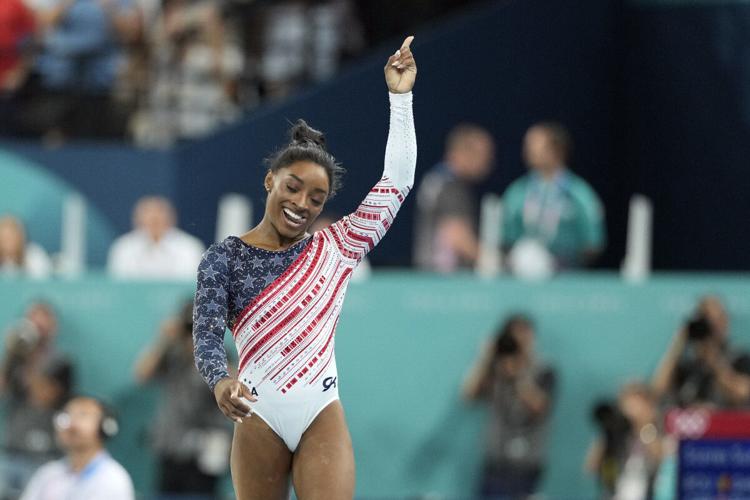
Living life in the spotlight and being the center of attention might seem glamorous, but for Simone Biles, it’s often a double-edged sword. Constant recognition from strangers means she’s rarely able to fly under the radar, creating a feeling of always being on and needing to live up to others’ expectations. This constant invasion of privacy can be draining because it prevents the opportunity to savor the joys of life uninterruptedly. In the long run, bearing the burden of public scrutiny can have a negative impact on her mental health, making her yearn for a semblance of normality that is elusive in her glamorous lifestyle.
Since making her Olympic debut in 2016, Simone Biles has really captured everyone’s attention. She led the U.S. team to gold and snagged three individual gold medals in the all-around, vault, and floor finals—all at just 19 years old! Her incredible achievements have put her on the map alongside legends like LeBron James and Serena Williams. You know what they say, “Everything comes at a cost,” and Simone has opened up about how it is affecting her.
Biles uncovers the hidden struggles of fame
Olympics.com recently shared an interview of Biles titled “Simone Biles on dealing with fame: ‘It is still crazy to me, but sometimes it is scary.’” This tells her journey and how fame affected her. Following her comeback at the 2024 Paris Olympics and clinching four medals – three gold and one silver – Biles not only cemented her legacy but also surpassed Shannon Millers record, for the most Olympic medals won by a US gymnast.
Simone further opened up about how fame feels for her. She said, “Sometimes it just takes a little more security or stuff, but I don’t let it hinder anything, which is really good, huh? I’ve put gymnastics on the map on a global scale, so it’s crazy to me.”
Simone also shared, “Sometimes, it’s scary because everybody knows me, and I don’t know everybody—yeah, it’s just kind of weird.” An example of the downside of fame emerged during the Tokyo 2020 Olympics held in 2021 when Biles opted out of some events to prioritize her mental being. Despite receiving support from many, for her choice of action there were some who labeled her as a “Quitter.”

She also mentioned the comparisons people make, saying, “People are like, ‘Oh, you’re the Serena or the LeBron of gymnastics,’ and I’m like, that’s crazy. The things they’ve done for their sport, and to think I’ve done that for gymnastics, is just wild.” Being recognized alongside such figures is truly an accomplishment, on its merit! To be likened to LeBron James with his four NBA titles and Serena Williams who reshaped women’s tennis with 23 Grand Slam singles victories is certainly a feat that we should all take pride in.

Biles reminisced, saying, “I went from flipping off swings and mailboxes, jumping over railings in the house to land on the couch—absolutely not.” It’s amazing to imagine that while she was enjoying herself much then no one really foresaw that she would emerge as the greatest of all time, in gymnastics! Those carefree days were just the beginning, setting the stage for her incredible transformation and really reshaping her identity as an athlete. But Biles’ impact reaches far beyond gymnastics; she’s also made a mark on an issue that affects 57.8 million adults—breaking down stigmas that will be remembered throughout history.
Simone Biles’ bold Tokyo decision that changed the mental health game for athletes everywhere
Could you imagine stepping away from your sport at the peak of your career? For Simone Biles, that’s exactly what she did. With a strong, clear mindset, Simone Biles made a decision based on her well-being rather than just focusing on gymnastics during the Tokyo Olympics – a move that sparked important conversations, about mental health, in sports.
Everyone expected Biles to lead Team USA to gold, but she chose to withdraw from several events, citing mental health concerns and a scary condition called the “twisties.” As a gymnast, safety is paramount, and losing track of space mid-air could result in harm to oneself; focusing on her well-being first and foremost, even at the cost of potentially winning Olympic medals, clearly shows Biles commitment to her own welfare.

Her decision caught the world’s attention and opened up a much-needed conversation about the intense pressure athletes face. Tokyo had already put athletes through the wringer, with COVID restrictions, isolation, and high expectations. By talking openly about her struggles, Biles helped break down the idea that athletes have to be invincible. Her choice made people realize that mental health isn’t separate from physical health—it’s essential for performance and safety. She showed everyone that sometimes the strongest thing you can do is step back and take care of yourself.
Biles’ Tokyo moment didn’t just impact gymnastics; it set a new standard for all athletes by making it okay to prioritize mental health. It challenged the old-school idea that strength means pushing through at any cost, showing that resilience sometimes means taking a break. Her decision marked a turning point in sports, sparking a broader shift toward seeing mental health as something every bit as important as winning medals. It’s a classic case of “the higher you climb, the harder you fall,” and it’s a reminder that even when you’re on top of the world, it’s not always sunshine and rainbows.





